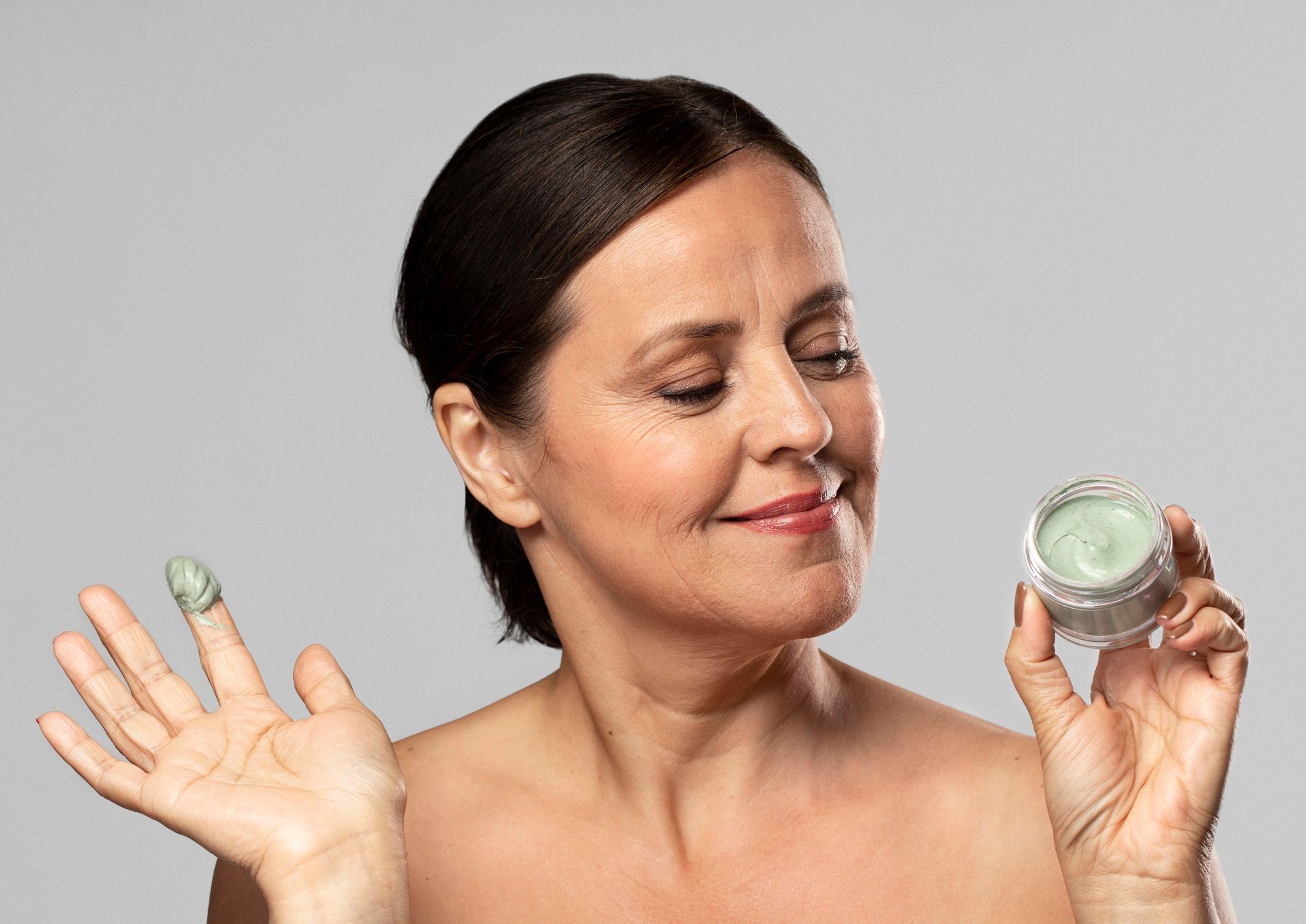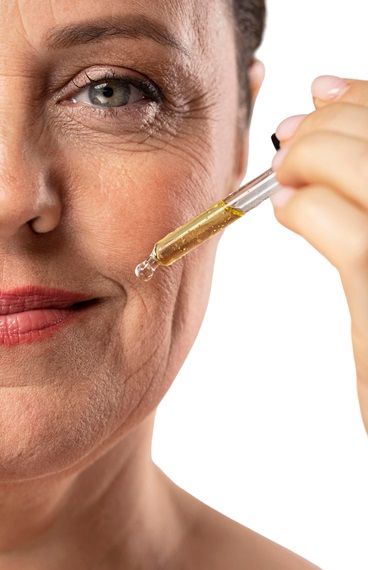The Best Anti-Aging Ingredients Dermatologists Swear By

Aging is a natural process, but the desire to maintain youthful, vibrant skin is universal. Dermatologists often recommend certain active ingredients to help combat signs of aging such as fine lines, wrinkles, loss of elasticity, and dullness. These key ingredients, including retinol, peptides, and hyaluronic acid, have stood the test of time in both research and practice. In this article, we’ll explore how these ingredients work, their benefits, and why dermatologists consider them essential in any anti-aging skincare routine.
1. Retinol: The Gold Standard for Anti-Aging
Retinol, a derivative of vitamin A, is perhaps the most well-known and dermatologist-approved ingredient for addressing aging skin. It belongs to a group of compounds known as retinoids, which work by increasing cell turnover, stimulating collagen production, and reducing the appearance of fine lines and wrinkles. Here's why dermatologists swear by it:
How Retinol Works:

Retinol penetrates the skin's surface, speeding up cell turnover and prompting the skin to shed its old, dead cells. This process reveals fresher, smoother skin underneath, and with continued use, retinol can also stimulate the production of collagen and elastin, the proteins that give skin its firmness and elasticity. Retinol’s ability to encourage new skin growth helps smooth fine lines, reduce hyperpigmentation, and even out skin tone.
Dermatologists often refer to retinol as the "gold standard" because of its versatility in treating multiple signs of aging simultaneously. Retinoids are essential because they work at the cellular level to repair sun damage and reverse signs of aging. The added benefit is that retinol can also address acne and clogged pores, making it suitable for individuals dealing with both aging and acne-prone skin.
Best Practices:
However, retinol can cause irritation, especially for sensitive skin types. Dermatologists recommend starting with a lower concentration and gradually building tolerance. Using it at night and following up with a moisturizer and sunscreen during the day is essential to prevent irritation and sensitivity to UV light.
Popular Retinol Products:
SkinCeuticals Retinol 0.3 (for beginners)
ROC Retinol Correxion Deep Wrinkle Night Cream
The Ordinary Retinol 0.2% in Squalane
2. Peptides: Building Blocks for Skin Repair
Peptides are short chains of amino acids, which are the building blocks of proteins like collagen and elastin. As we age, the natural production of these proteins slows down, leading to the visible signs of aging such as wrinkles, sagging skin, and loss of elasticity. Dermatologists recommend peptides because they help trigger the skin to produce more collagen, improving skin texture and firmness.
How Peptides Work:
When applied topically, peptides signal the skin to produce more collagen. They essentially "trick" the skin into thinking it has been injured, prompting it to go into repair mode by boosting collagen production. This helps to smooth wrinkles, improve skin elasticity, and promote a firmer, more youthful complexion over time. Peptides are key for those looking to address loss of firmness and elasticity in the skin. Because peptides are small enough to penetrate the skin, they work effectively at a cellular level, and the anti-inflammatory properties of peptides also help calm irritation, making them suitable for sensitive skin.
Unlike retinol, peptides are generally well-tolerated and less likely to cause irritation, making them an ideal option for individuals with sensitive skin who still want to see firming and anti-aging benefits.
Types of Peptides:
Signal Peptides: Stimulate collagen production (e.g., palmitoyl pentapeptide)
Carrier Peptides: Deliver trace elements needed for collagen production (e.g., copper peptides)
Enzyme Inhibitor Peptides: Prevent the breakdown of collagen by inhibiting certain enzymes
Best Practices:
Peptides are most effective when paired with other active ingredients like hyaluronic acid and antioxidants. Dermatologists recommend using peptide-based serums or creams twice daily for the best results. Peptides also work well with retinol, making them a complementary ingredient in a well-rounded anti-aging regimen.
Popular Peptide Products:
Olay Regenerist Micro-Sculpting Cream (palmitoyl pentapeptide-4)
Drunk Elephant Protini Polypeptide Cream (multiple peptides)
The Ordinary Buffet (a peptide-rich serum)
3. Hyaluronic Acid: The Hydration Hero
While hyaluronic acid (HA) isn’t a direct anti-aging ingredient in the way retinol or peptides are, it plays a crucial role in maintaining the skin's youthful appearance. Hyaluronic acid is a naturally occurring molecule in the skin that attracts and retains water, making it a powerhouse for hydration. Proper hydration is key to keeping skin plump, smooth, and minimizing the appearance of fine lines.

How Hyaluronic Acid Works:
Hyaluronic acid can hold up to 1,000 times its weight in water, which helps hydrate the skin from the inside out. By binding moisture to the skin, HA creates a plumping effect that reduces the look of fine lines and gives the skin a dewy, youthful glow. Because dehydration can make wrinkles more pronounced, using HA can temporarily make the skin look smoother and firmer. As we age, our skin naturally loses moisture, making it more prone to fine lines and wrinkles. Hyaluronic acid helps restore that moisture balance and keep the skin looking fresh. The fact that HA works for all skin types—whether dry, oily, or sensitive—makes it a favorite among dermatologists.
Best Practices:
Hyaluronic acid works well when layered with other active ingredients. Dermatologists suggest applying HA-based serums or moisturizers to damp skin to help lock in moisture. HA can also be paired with retinol to combat the drying effects of retinoids and ensure the skin remains hydrated and balanced.
Popular Hyaluronic Acid Products:
Neutrogena Hydro Boost Water Gel (a lightweight, hydrating option)
The Ordinary Hyaluronic Acid 2% + B5 (a budget-friendly serum)
SkinCeuticals Hydrating B5 Gel (combines HA with vitamin B5)
4. Other Key Ingredients Dermatologists Recommend
While retinol, peptides, and hyaluronic acid are standout anti-aging ingredients, other compounds are also worth considering to support a well-rounded skincare regimen.
Vitamin C (Ascorbic Acid):
Vitamin C is a potent antioxidant that helps protect the skin from environmental damage caused by free radicals, such as pollution and UV radiation. It also promotes collagen production and brightens the skin, reducing the appearance of hyperpigmentation and sun damage. Dermatologists often recommend pairing vitamin C with sunscreen for enhanced UV protection.
Niacinamide:
Niacinamide, also known as vitamin B3, is another multi-functional anti-aging ingredient. It helps improve skin elasticity, strengthen the skin’s barrier, and even out skin tone. Niacinamide also has anti-inflammatory properties, making it beneficial for aging skin prone to redness or sensitivity.
Ceramides:
Ceramides are lipid molecules that help maintain the skin’s natural barrier and retain moisture. Aging skin often experiences a loss of ceramides, leading to dryness and increased sensitivity. By replenishing ceramides, the skin remains hydrated and protected from external aggressors.
Conclusion
When it comes to anti-aging skincare, the right ingredients can make all the difference. Retinol, peptides, and hyaluronic acid are dermatologist favorites because they target multiple aspects of aging, from wrinkles and fine lines to loss of elasticity and hydration. By incorporating these powerful ingredients into your skincare routine, you can help your skin stay smoother, firmer, and more youthful for longer. Combining these with other supportive ingredients like vitamin C, niacinamide, and ceramides creates a comprehensive approach to aging gracefully. Always consult with your dermatologist to tailor a skincare regimen that fits your specific needs and skin type.







